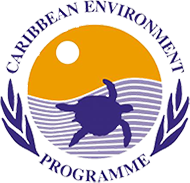Six months ago, life was what we would have called “normal”; fast-forward to June 2020, in the throes of a global pandemic and recovery efforts- the catchphrases- quarantine, social distancing, masks and stay at home have become the new norm.
Amidst various government policies and strategies to contain the virus and protect public health, socio-economic challenges have arisen as economic downturns affect the livelihoods and social status of many persons. It is certainly evident that things cannot remain the same. The Coronavirus experience has made us reevaluate how we conduct business and carry out daily activities.
As many countries now turn to recovery efforts in response to the economic challenges, it is crucial for us to remember this new norm has presented several opportunities for us to build back better with stronger, resilient economies in harmony with nature. If this is not considered in the recovery efforts, we could very well be headed back to square one.
Human-environment impacts
The Convention on Biological Diversity, whose Secretariat is hosted by UNEP, highlights that “as the global community is called to re-examine its relationship to the natural world, one thing is certain: despite all our technological advances we are completely dependent on healthy and vibrant ecosystems for our health, water, food, medicines, fuel, and energy, just to name a few”.
As we try to address the rising inequalities as a result of the coronavirus, nature may once again be put at a disadvantage. We must consider the ways we can work with the environment to protect people, their livelihoods and cultures while reversing the current trajectory of biodiversity loss and degradation of nature.
COVID-19 has underscored the close connection with people, nature and climate and in order to reduce the likelihood of future pandemics and zoonotic risks – we must act now to halt rapid environmental decline.
Nature-based solutions & resource efficiency
During the recent quarantines, isolations and general stay-at-home orders, nature has taken the opportunity to recover. Several water bodies are clearer and air quality has improved.
Social media has played a large role in spreading awareness about these changes and as a result, persons have become more aware of the effect their activities have on the environment, the changes that can occur through taking action and the importance of good government and business policy.
The linkages between reduced human carbon footprint and positive changes in the environment are evident. However, this is the time to build on the momentum and harness the climate benefits from nature-based solutions. The time to consider how we can transition to greener, inclusive economies that make our production processes, travel and other carbon-heavy activities, more efficient.
Inger Andersen, Executive Director, UNEP recently highlighted in her article Covid-19 is Not a Silver Lining for the Climate, that “the environmental improvements seen since the outbreak are temporary, and come on the backs of human distress and economic slowdown.”
But, through increased investments, policies, and actions that harness alternatives, protect nature and are carbon neutral we can implement sustainable consumption and production as well as introduce green jobs in a greener, more inclusive, sustainable economy.
Waste Management, also crucial for recovery
Undoubtedly, COVID-19 raised new issues with the increase in medical waste that calls for improved waste management in response to the global crisis. Solutions to mitigate the possible adverse effects are crucial as we continue to protect human health, land and marine animals and control the release of harmful chemicals into the atmosphere, land and water.
Waste management will likely include efforts to improve the appropriate identification, collection, separation, storage, transportation, treatment and disposal as well as disinfection and personnel training and protection. With the rise in medical refuse, it is important to review the ways in which medical and other waste, can be reduced. Putting a focus on these issues can result in advancements in medical and other waste disposal.
Our Future is Dependent on how we act now
With the hurricane season rapidly approaching in the Caribbean, many uncertainties lie ahead. We must update our disaster management response and improve our resilience.
Much of this lies in the truth that humans live in a symbiotic relationship with nature; neither can truly survive without the other. COVID-19 has given us an opportunity to press reset on many of our activities. Let’s seize the opportunity to press reset on our relationship with nature and get on track to a more sustainable future.
This article was contributed by the UNEP Caribbean Sub-Regional Office.






